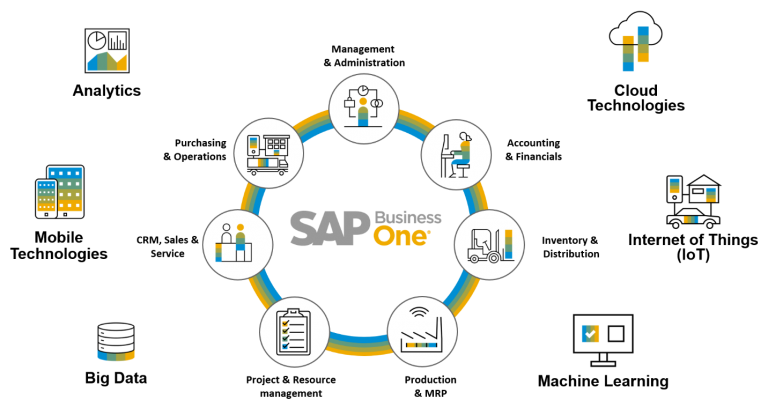

CRM: A good ERP system will maintain all customer information and monitor relationships.And all of this is coordinated with accounting as well. HR: Keeping a complete database of all employees, and coordinating departmental needs to best utilize current work force and determine where new needs may be.Accounting: Automating financial operations with other departments will allow real-time updates and insights, as well as ensuring regulatory compliance.Distribution: Controlling warehouse processes and the movement of goods to customers as efficiently as possible.Production: ERP can help in planning the manufacturing process, having the right resources at the right time, and ensuring that the distribution process meets its goals.Procurement: Supplier relationship management (SRM), when coordinated with production management, can result in greater efficiency and cost savings.All of these processes can be integrated in one place: Typically, ERP systems run on a myriad of hardware and network configurations, via a database and repository. Data can thus be easily shared among all departments, as information flows back and forth, making coordination far more efficient. By utilizing such a system, an organization has a well-integrated and continually updated picture of all core business processes, through a common database.
#Microsoft dynamics 365 crm vs sap crm software#
The advantages of enterprise resource planning (ERP) software have been well established.


 0 kommentar(er)
0 kommentar(er)
